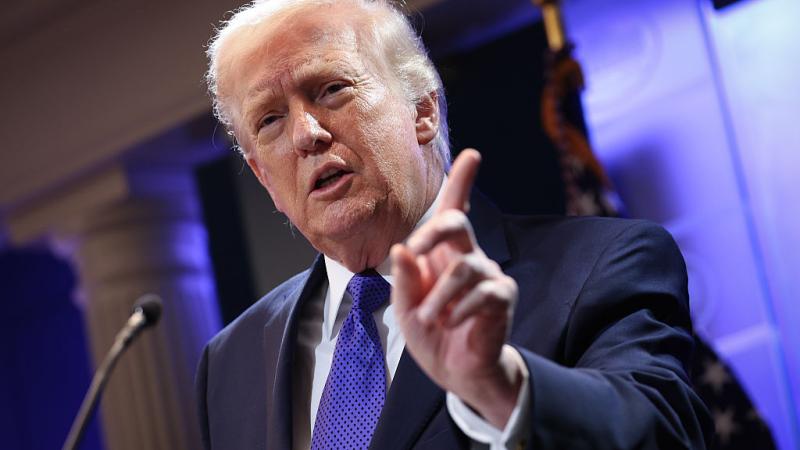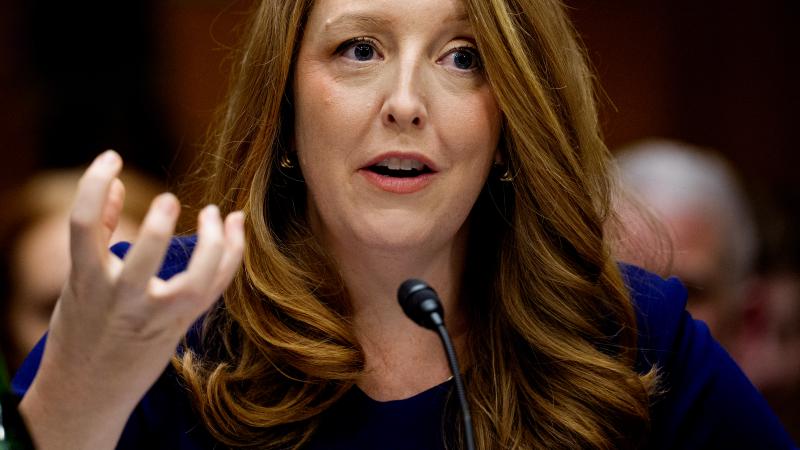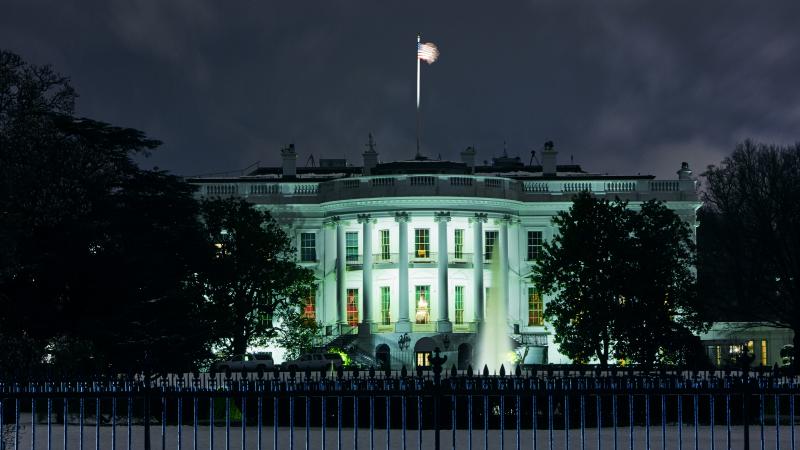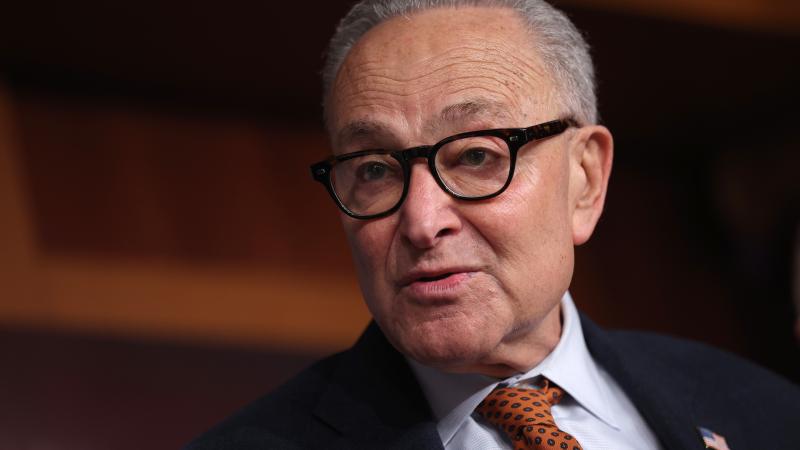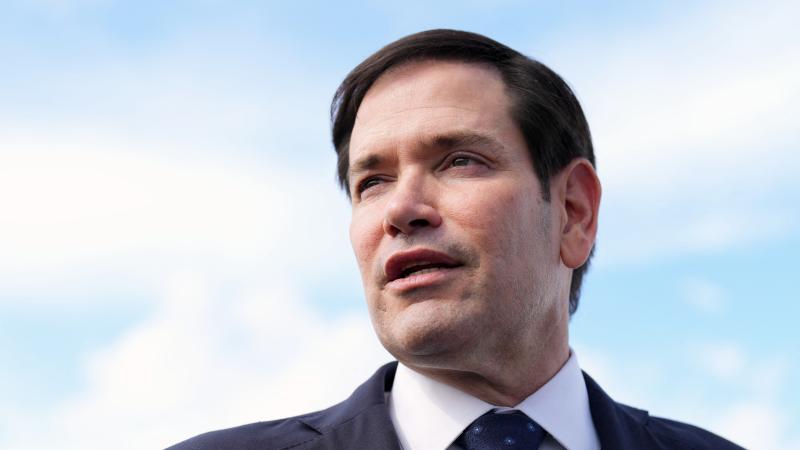Trump eager to secure farmers' votes for midterms, despite tariff tumult
While Republicans have traditionally enjoyed an advantage among rural voters in the past, Democrats are trying to capitalize on the adverse impacts on agribusiness of Trump’s trade rows with China.
President Donald Trump and the GOP appear eager to lock up the American farmers' vote for the midterms. It appears they can’t take the traditionally red rural counties for granted as the agricultural sector weathers tumult from the White House’s ongoing trade rows, especially with China.
While Republicans have historically enjoyed an advantage among rural voters over past decades, Democrats are hoping to capitalize on the adverse impacts of Trump’s trade rows with China. Republicans, for their part, are certainly aware of the issue and have worked throughout the current Congress to provide some relief.
In the year 2000, the GOP earned 51% support among rural voters, compared with 45% who preferred the Democrats, according to the Pew Research Center. That advantage ballooned to a 60% to 35% advantage for the Republicans as of 2023.
Trump won 63% of rural voters in 2024 and 60% in 2020. Rural constituencies have increasingly drifted Republican, but economic tumult has Trump losing ground with them in recent months. A recent ActiVote survey published by Newsweek, found Trump with 59% approval among rural voters in August, though that figure declined to 54% in the September iteration of the poll. Newsweek did not disclose the methodology or margin of error for that poll.
Farmers facing hard times
Republican lawmakers have, in recent weeks, expressed concerns about the state of small farmers and the broader agricultural sector, especially amid the ongoing government shutdown.
“Quite honestly, the farm economy has been struggling since 22-23 but it's worsened. So action on the tariffs, action on new markets. Remember, through the Biden administration, we had four years of doing nothing on trade whatsoever,” Rep. Mariannette Miller-Meeks, R-Iowa, said on the “Just the News, No Noise” television show.
“We're competing with Brazil for ethanol and biodiesel, as the Chinese Communist Party has opened up the market in South America. And so it's very important for farmers to, number one, have access to these resources … and then hopefully see some relief through the tariffs as trade deals are negotiated,” she added.
Iowa is a primarily agricultural state that, traditionally, was a pivotal swing state. The Hawkeyes have drifted rightwards in recent elections, with Democrats last claiming the state in 2012. President Trump won Iowa handily in all three of his elections and the state is broadly regarded as Republican-leaning.
Rep. Troy Downing, R-Mont., shared that sentiment on the same program, saying, “I understand a lot of our farmers and ranchers are suffering right now. They're concerned, especially in Montana. Our grain producers are very concerned. There's a lot of grain, you know, on the ground.”
“We're trying to figure out how to survive, but, but I'm just going to put this in a really simple, simple format, you know, the agricultural sector is incredibly important to my district,” Downing added.
“It's incredibly important to the economy of my state. But it's above that. This is a national security issue throughout the history of humanity. If you want to bring a country down, you make it so it can't feed itself. And we need to make sure that our farmers and ranchers are being taken care of.”
A possible bailout?
But the Trump administration has not been blind to the frustrations of its core electorate and is reportedly considering executive action to provide short-term economic relief.
“President Trump and [Agriculture] Secretary [Brooke] Rollins are always in touch about the needs of our farmers, who played a crucial role in the President’s November victory,” White House spokeswoman Anna Kelly told The Wall Street Journal. “He has made clear his intention to use tariff revenue to help our agricultural sector, but no final decisions on the contours of this plan have been made.”
Treasury Secretary Scott Bessent, moreover, is currently mulling a $10 billion farm bailout to help small farmers cope with the barriers to Chinese and other foreign markets, according to the Journal. The outlet reported that the Treasury would use revenue from the Trump tariffs to finance the disbursements.
Food security is national security
Lawmakers representing rural districts, moreover, have pointed to the One Big, Beautiful Bill Act and its provisions to assist farmers as likely to shore up the support of that industry. The comprehensive legislative package was an all-in-one vehicle for an array of Trump policies, though its funding for mass deportations attracted the most attention.
“There is some very good stuff in OB3 [One Big Beautiful Bill Act], very good stuff for farmers and for agriculture in general, also agricultural manufacturers,” Miller-Meeks said. “But you know, the ability to pass on a farm, the […] energy tax credits were important. We worked hard to get those.”
“We've worked since the beginning of the year to get the [renewable value obligations] up so that that would increase the amount of both ethanol and biodiesel that comes from commodities, grains. So, you know, farmers are happy to have the relief, but they are struggling.”
Downing shared Miller-Meek’s sentiments on the positive developments in the OBBBA, but insisted Congress would need to go further and make significant changes to the Farm Bill when it next comes up for a vote.
“I know a lot of the stuff that they were concerned about, we got into the One Big, Beautiful Bill but that's only part of it,” Downing said. “We need to make sure that we get a new farm bill in there, that we've got all the things that they need, from crop insurance to, you know, everything that's in there. We need to get a long-term reinstatement of that, and that's very important to them.”
“But the bottom line is, this is not just about a local economy of a rural state. This is about national security,” he added. “And I'm happy that the President is taking this seriously, because we need absolutely to make sure that our farmers and ranchers continue to do what they do best and feed this nation.”
Ben Whedon is the Chief Political Correspondent at Just the News. Follow him on X.


